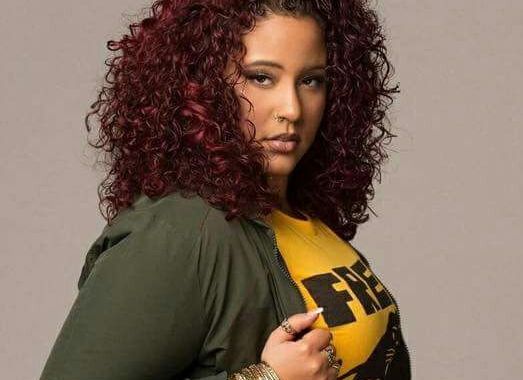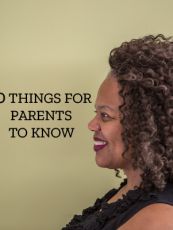
Staff Spotlight: Jazzmyn Rodrigues, Mentor 2.0 Program Coordinator
Mentor2.0 is a technology-enhanced one-to-one mentoring program that provides transformative one-to-one support for low-income and first-generation high school students to prepare them for high school success, college matriculation and workforce readiness. We currently work with Boston Green Academy (BGA) in Brighton and the Edward Kennedy Academy of Health Careers in the Fenway. This week we caught up with Jazzmyn Rodrigues, Mentor 2.0 Program Coordinator at BGA, about her background prior to joining BBBSMB, playing a pivotal role in the lives of her students as a woman of color, her experiences teaching African American history to high school students, and much more. Enjoy!

Tell me about your background before coming to BBBSMB. Why were you attracted to BBBSMB as a place to work?
Before coming to BBBSMB I worked in the Brockton Public School System for an alternative school. First I came in as a long term substitute and was teaching four History classes with no prior experience as a teacher. Fair to say it was a very interesting first year! Then the following year they took me on in a permanent position as a Monitor Teacher’s Assistant. I also worked in an afterschool mentor program for students with arrest records and felonies as a mentor and teacher within Brockton. During my time as an MTA I was allowed to teach one class. My class of choice was “Black History”. This had been my main study focus in college and throughout life. It was the one thing I felt I could give back to my community. I felt the immense need to teach young people about our roots after I had learned so much. I enjoyed my time in Brockton Schools and saw the difference the class I taught made in the students. Unfortunately, though I loved my time with my students, Brockton Public Schools did not have much job security. As a district with a 16 million dollar deficit, “pink slips” were always circulating. Each year we didn’t know if we would be employed the following year. This pushed me to look elsewhere. I found the position for Big Brothers Big Sisters Mass Bay as a Program Manager for Mentor 2.0 and it was perfect! The position with BBBSMB incorporated just about everything I enjoyed doing as well as my acquired skill set. Teaching, mentoring, and program development all in one. I am really enjoying my time with BBBSMB and hope to help make some strides with our Mentor 2.0 Program in the future!
What does a typical day as a Mentor 2.0 Program Coordinator look like? What are you currently working on?
A typical day for a Mentor 2.0 Program coordinator is a little hectic but always rewarding. You spend about an hour or so teaching your class and the rest of the day is filled with phone calls and follow-ups. I am often meeting with students individually, meeting with teachers to discuss students, entering data and grades, or on a phone call supporting a mentor or parent. Each day is a little different but each day you know you make some sort of difference, big or small.
As a Mentor 2.0 Program Coordinator you play an integral role in closing the opportunity gap and guiding future first-generation college students on their path to success. What do you aim to instill in your students?
The main lesson I try to instill in my students is “You can…”. I tell them often that ordinary people do extraordinary things every day and all there is to it, is to do it. As a youth, I was often told that I was incapable of being successful, whether by teachers or administration. It was a bit of a different time for me, but the school I went to was not exactly full of people of color. I feel that I was often stereotyped by people I came across and that because of who I was and where I came from it was implied to me on many occasions that I would not accomplish much. I made it my mission to prove those people wrong and I teach my students the same. WE define what our lives will be, not our situation, not our income, not our skin color, and absolutely not anyone else’s opinion. I make sure to teach them the importance of never giving in or giving up. You have to get that fire in you to succeed and if you do, you most certainly will.
Of the 510 students at BGA, nearly 90% are students of color. As a woman of color do you feel an added level of responsibility to uplift and encourage your students to reach their highest potential?
Every day. I myself have had many of these experiences these students have had. I know what it’s like to live in a poverty stricken community, to lose a friend at a young age, to face discrimination, to have friends and family that might not always be doing the right thing, and to have the people you encounter assume you will succumb to you conditions rather than rise above. When you can identify with these struggles you know how it felt when you were in the same situation. I know that I needed somebody to uplift me and speak life into me so I make sure to do the same for my students. I became a teacher for those reasons. I had teachers that really pushed me and saw something in me that was often greater than what I saw in myself. There were instances where if they didn’t have that talk with me, or keep me after class to ask me what’s bothering me I could have slipped through the cracks. But I didn’t, because of their tenacity as teachers, and I wanted to be the same person for kids like me.
Outside of work, you’re also a musician. Have you been able to incorporate your music into any lesson plans? Which of your songs do you think would have the biggest impact on your students?
I haven’t incorporated any of my music into lesson plans yet, but I do make it a point to incorporate music when I can! I have included songs from Tupac into lesson plans as well as other well-known artists and the kids really enjoy it. I mean, how often do you get to watch a music video in class and dissect song lyrics to find the deeper meaning? They love lesson plans that they can relate to, so I try my best to include certain elements.

If I were to include any of my songs it would probably be “Questionable Blackness”. In this song I talk about the struggle of being biracial and the inner turmoil it sometimes causes. It discusses trying to find your identity in a world that is run off of categories when you don’t really know where you fit in anywhere. It also talks about loving one another as black people no matter what shade we are or country we come from. I think unity is important and crucial to the progression of all people and if students can begin to unpack these ideas at a young age then by adults I believe they can make a change in the world.
What was your experience teaching African American history to high school students?
There really is so much beauty in teaching students about people who look like them. Kings, queens, scientists, mathematicians, inventors, and activists. There’s something about hearing these stories that can truly change students. I’ve watched students who were failing year after year and class after class come into my classroom and make a huge turn around. Their grades improve, attendance improves, and they get excited to learn. It is truly empowering for our students and crucial to their development that they see people who look like them that have done remarkable things throughout history. I believe it really gives students a renewed sense of self and a strong sense of pride. It is literally amazing what I have seen take place in a classroom from teaching students their history.
What advice would you give to someone considering becoming a Mentor 2.0 Big?
My best advice for a Mentor 2.0 Big would be have patience and don’t take anything personal. These kids are still developing. If you can, put yourself in their shoes at 14 to 16 years old. It’s a tough time for anybody, let alone the student population we serve. Patience is key with dealing with the high school age group. Every student opens up on their own terms and in their own way. It may take a student one time to start telling you their whole life story and it may take another student 6 months. Development is personal and it is always on the individual’s own terms. Also, don’t take anything personal. This is a tough age group, sometimes students don’t want to engage or do their work, then on other days they’re on top of everything. It’s a really “go with the flow” kind of mentality you need. Take your wins when you get them and if you don’t, come back for another day. It is so important to these students that they have someone who consistently shows up for them every day. That alone can make all the difference. Be supportive, be intentional, and just know that every day you show up for them, you make an impact!
Want in on the action? Good news, we’re hiring! Check out these open positions to see how you can join our team.
Children s safety is our number one priority; throughout the duration of the match, not just the beginning!
